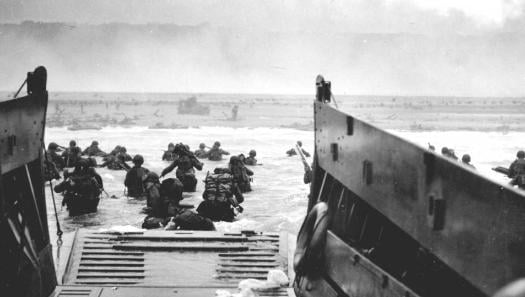Military & Veterans News
Benefit News: VA Answers Governor Christie's Call on Opioid, Launches S.T.O.P. P.A.I.N Advices and Guidelines
Office of Public and Intergovernmental Affairs

WASHINGTON – When it comes to treating pain and substance abuse, the Department of Veterans Affairs is recognized by many as a leader in the pain management field and the responsible use of opioids across the VA healthcare system.
“Recent studies and stories have pointed to VA’s success in its approach to pain management and responsible use of opioids with our Veteran patients,” said VA Secretary David J. Shulkin.
“As Governor Christie, Chairman of the President’s Commission on Combating Drug Addiction and the Opioid Crisis, said yesterday, our country’s opioid crisis is indeed a national public health emergency, and to fight it, we must all join forces across the cabinet and executive and legislative branches.
“At VA, we have learned a lot over the past several years and, to Governor Christie’s point, we want to share our knowledge and experience right away with our federal, state and local partners, as well as our nation’s healthcare networks. This national crisis demands a national partnership and approach.”
To that end, Secretary Shulkin announced the release of VA’s top eight best practices to share with others in government and the healthcare industry who work to balance pain management and opioid prescribing, based on what VA has learned over the past four years.
These best practices are summed up by the acronym S.T.O.P. P.A.I.N.
S.T.O.P. P.A.I.N. stands for:
- S - Stepped Care Model – Adapted from the National Institutes of Health, this model encourages a continuum of care with effective monitoring and management of the condition from onset through treatment. It incorporates self-management through participation in such groups as Narcotics or Alcoholics Anonymous; counseling; treatment programs; involvement of primary care; and other medical specialists.
- T - Treatment alternatives/complimentary care – Complimentary and Integrated health expands the availability of provider options beyond the use of standard care in the treatment of chronic pain. Complementary Health may include such evidence-based treatments as acupuncture, yoga, and progressive relaxation.
- O - Ongoing monitoring of usage, which relies on multiple tools for tracking and monitoring individual usage of and risk of opioid therapy.
- P - Practice Guidelines - Key Clinical Practice Guidelines (CPG) provide clear and comprehensive evidence-based recommendations for practitioners to minimize harm and increase patient safety in patients requiring Substance Use Disorder (SUD) treatment and opioid therapy. They can be found online at https://www.healthquality.va.gov/guidelines/MH/sud/ and https://www.healthquality.va.gov/guidelines/Pain/cot/
- P - Prescription monitoring – VA has a number of data sources to allow it to monitor opioid use to target specific education in real time. The practice patterns of providers differ, along with the case mixes, so a provider with relatively high opioid prescribing may have an appropriate practice, or be someone who could benefit from education. These tools allow the VA to drill down to the patient level to evaluate use. Other tools can evaluate the treatment of patient panels and the Veterans’ risk of potential abuse. Together, these allow identification of potential problems, educational targeting, and tracking of progress.
- A - Academic Detailing - The Academic Detailing program is a one-to-one peer education program targeted to front-line providers. It gives specific information on practice alternative and resources, opioid safety, and can compare the practice of the provider to that of their peers. Veterans have improved pain control as a result of it. Information about this may be found at : https://www.pbm.va.gov/PBM/academicdetailingservicehome.asp and https://www.pbm.va.gov/PBM/academicdetailingservice/Pain_and_Opioid_Safety.asp
- I - Informed consent for patients - VA requires an informed consent process prior to long-term opioid therapy. This process includes education on the risks of opioid therapy, discusses opioid interactions with other medicines, and reviews safe prescribing practices such as urine drug screens.
- N - Naloxone distribution - The Opioid Overdose Education & Naloxone Distribution, also known as the OEND program has focused on education of providers on Naloxone distribution to Veterans on long-term opioid therapy. https://www.pbm.va.gov/PBM/academicdetailingservice/Opioid_Overdose_Education_and_Naloxone_Distribution.asp
More information about VA’s pain management efforts may be found at https://www.va.gov/painmanagement


